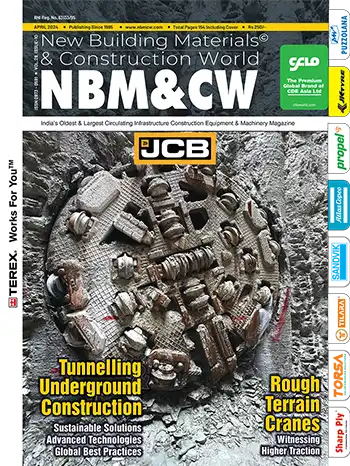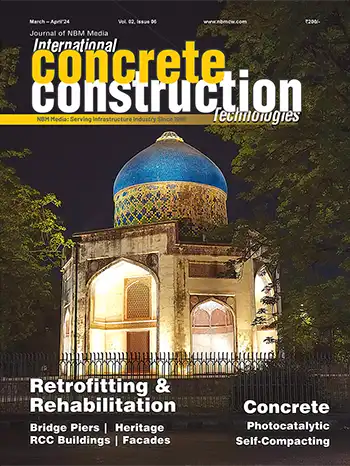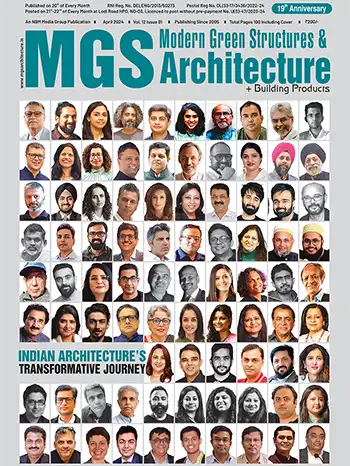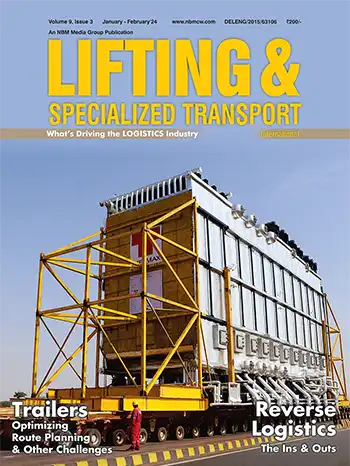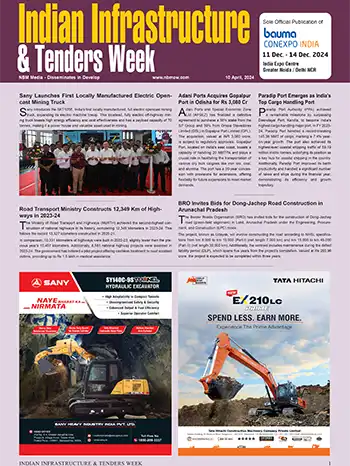Where is the Construction Industry headed?
Dr. Santosh Prasannan, P.E., Adjunct Professor, IIT Madras, Independent Consultant
In terms of its contribution to the global economy, the construction industry is at the forefront with a staggering annual share of 11- 12 trillion dollars. It is a large employer with more than 300 million people, or about 7% of the workforce. This contribution, however, comes with a heavy price to the environment. The industry's share of global raw material use is 35-40% and produces 30-40% of greenhouse gases and 33% of solid waste.
Challenges and Issues
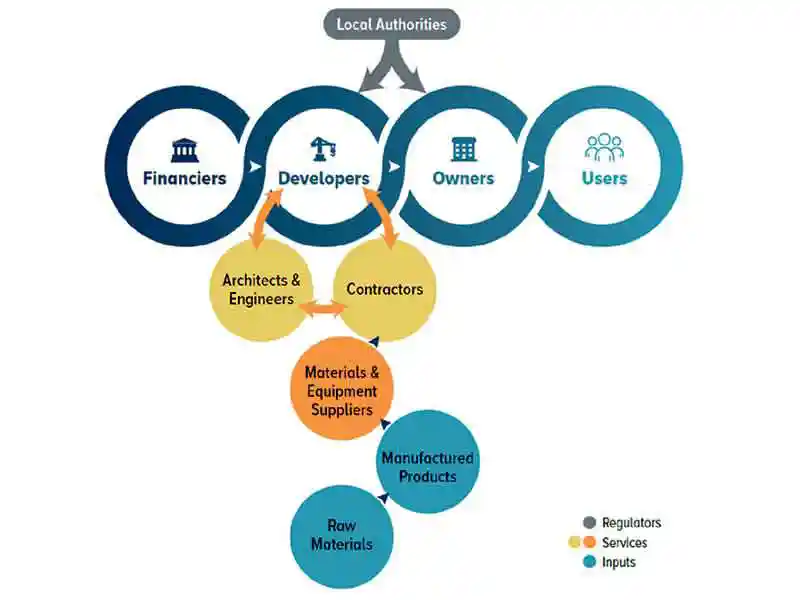 The industry faces many intrinsic and regulatory issues. It has multiple players along a complex value-chain. Organisations are silo-centric with little collaboration. Cost and schedule overruns in projects are common and which leads to unhappy clients. Land acquisition process and project approvals are tedious and often entangled in bureaucratic procedures - often the prime causes for corruption. In many projects, contractors bear most of the risks. Contracts are often awarded to the lowest bidder and without considering technical merit. The current pandemic has amplified the issue of shortage of skilled labour in the industry. Compared to manufacturing, the construction industry has lagged in adapting new processes and technologies. All these issues have led to low productivity and profits. A recent McKenzie study estimates that 1.6 trillion dollars is lost annually due to poor productivity.
The industry faces many intrinsic and regulatory issues. It has multiple players along a complex value-chain. Organisations are silo-centric with little collaboration. Cost and schedule overruns in projects are common and which leads to unhappy clients. Land acquisition process and project approvals are tedious and often entangled in bureaucratic procedures - often the prime causes for corruption. In many projects, contractors bear most of the risks. Contracts are often awarded to the lowest bidder and without considering technical merit. The current pandemic has amplified the issue of shortage of skilled labour in the industry. Compared to manufacturing, the construction industry has lagged in adapting new processes and technologies. All these issues have led to low productivity and profits. A recent McKenzie study estimates that 1.6 trillion dollars is lost annually due to poor productivity.
The above situation is pretty much the same in most parts of the world. With its back against the wall, major players including industry leaders, consulting firms such as McKenzie, KPMG and Boston Consulting Group, and global agencies such as the World Economic Forum and United Nations, have led studies to seek solutions to make the industry more productive, sustainable, and profitable. Industrial revolution 4.0 has also acted as a catalyst to change the stagnant mind-set.
Studies and Surveys
Conclusions from these studies, some of which were multi-year projects, were unsurprisingly similar. At the regulatory/ client level, more collaborative and transparent framework along with more flexible and risk-sharing contracts were recommended. At the industry level, the clear path forward was to have more digitisation, automation, and modularisation along with adaptation of lean management principles. At the organisation level, the general agreement was to attract bright talent, to re-skill existing staff and to adopt more agile and flexible management practises.
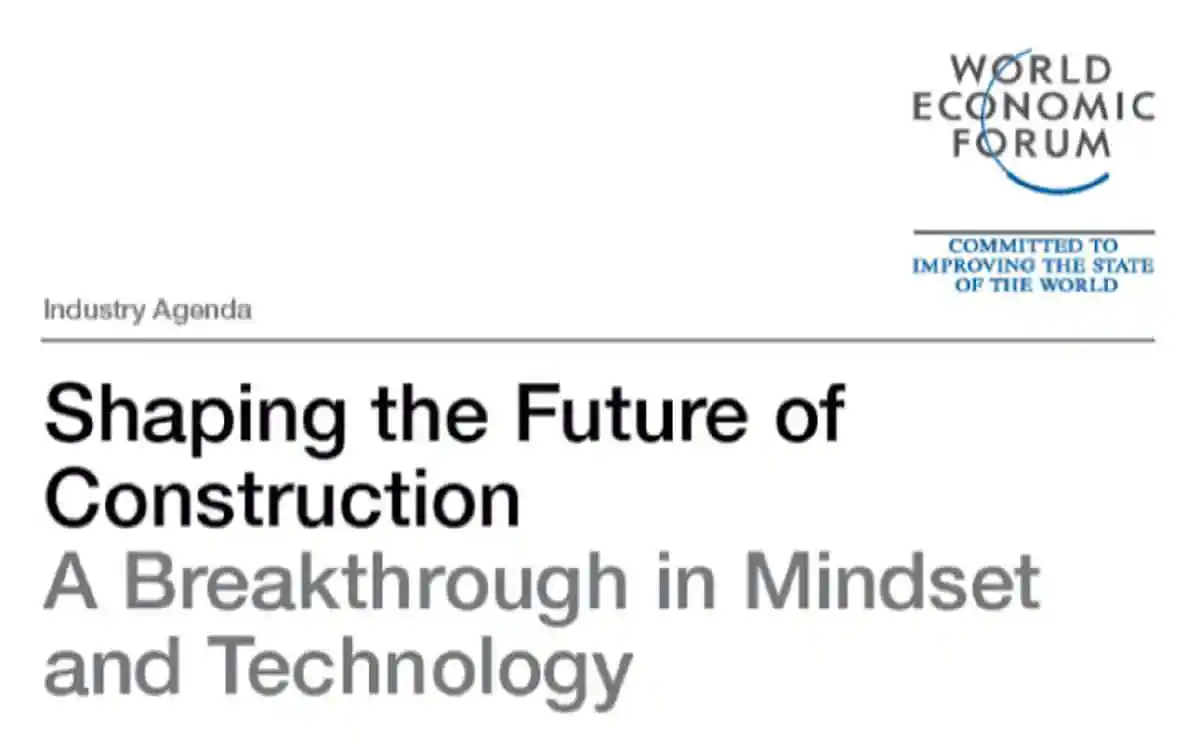
A recent survey conducted by KPMG amongst global industry leaders show that about 25% of the firms are already well-advanced in adapting recommendations from the studies, while 50% are in the beginning stages and the remaining 25% have not yet started the adaptation. Although there is acute awareness of a 'change or perish' scenario amongst the industry players, costs involved for adaptation are painfully high, especially for the small firms. The industry may witness more mergers and acquisitions and possibly more closures in future.
Changing Scenario
Rapid urbanisation, especially in developing countries, has spurred housing demand. In India alone, the estimate is 10 million units per year for the next few years. Along with the housing boom, infrastructure needs will naturally grow with more demand for new roads, water, power, and sewerage systems. In fact, many governments, including India, are funding infrastructure projects as one of the steps in reviving the economy from the current pandemic.
At ground-zero, there are clear and positive signs that the industry is in a state of transition. Governments and industry players have started to address sustainability issues. Several countries, especially those in Europe, have stipulated targets for recovery of construction waste. In India, 150 million tons of waste are produced annually but recycling is only 1%. However, the central and several state governments have started to initiate more recycling plants. Also, more sustainable construction materials are being developed and used. Governments and industry are supporting academia to undertake research and development of materials that are lighter and stronger, that use more by-products and recycled waste, and use less energy.
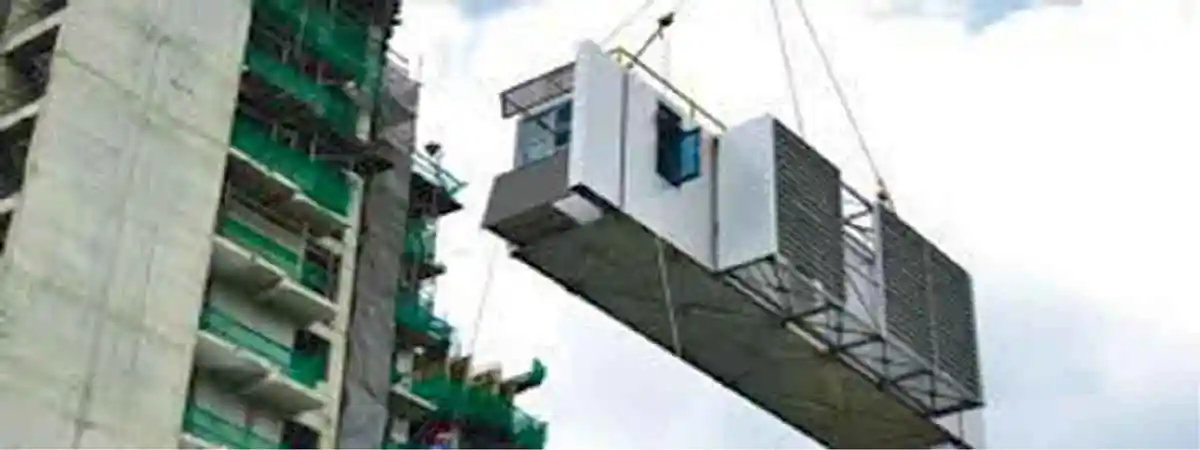
Modular and prefabricated construction technology have had historical ups and downs. The current upswing is expected to last, primarily due to the innovations from Industrial Revolution 4.0. Several countries from Europe and Far East Asia, Australia, and the USA have forged ahead with this technology in both housing and infrastructure sectors. India is also witnessing increased use of prefabricated units primarily in housing construction. Benefits such as savings in schedule and life cycle costs, waste reductions, and improved quality, outweigh challenges such as higher initial investments, inconsistent volumes, logistics and transportation issues. Therefore, the outlook appears to be positive for modular and prefabricated construction and the industry seems to accept this favourably.
Adaptation of automation and lean management methods in construction is slow compared to manufacturing. Larger geographical footprint and uniqueness of projects, and complex processes are cited as reasons for the slowness. Few large players have started to use automation methods in repetitive tasks such as brick and track laying. Lean principles are also used in a limited scale in housing construction. Concerns regarding worker displacement and capital expenditure incurred for such technologies makes the outlook mixed in India.
Digitisation in construction appears to be the biggest change adapted by the industry. The prominent backbone technologies are Building Information Modelling (BIM), Internet of Things (IoT) and Artificial Intelligence (AI). Globally, as well as in India, many players along the value chain have started to utilise digitisation tools such as drones, wearables, sensors in their projects. Clients and end-users are starting to benefit from use of digital technologies such as predictive modelling using data analytics, more collaboration across value chain, and development of smart buildings and cities. Globally, the outlook seems positive for further adaptation of digital technologies.
Governments and regulatory agencies, on the other hand, need to create a balance between control and adoption of innovation. The process has started in some countries, but in India, the shift in mindset for the adoption appears to be slow. Issues that continue to hinder progress include delays in land acquisition, approvals for utility relocations and worker safety. However, there are bright spots such as adoption of contractor-friendly procurement methods and more flexible contract terms for force majeure events such as the current pandemic.
Future of Construction
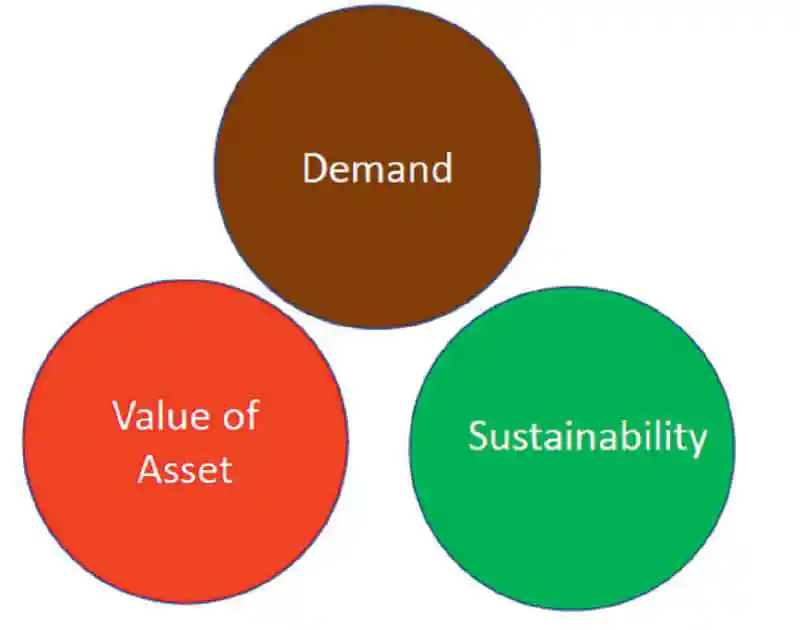 A major study by the World Economic Forum and Boston Consulting Group portrayed three future scenarios: In the first one, entire communities are built and operated with high dependence on virtual reality, which leads to more demand for residential and recreational spaces and less for commercial spaces. In the second scenario, construction is mostly prefabricated and automated and thereby a shift occurs from building industry to products industry. Concerns for scarce resources cause a green reboot in the third scenario, where there is less demand for buildings and infrastructure due to a circular and sharing economy.
A major study by the World Economic Forum and Boston Consulting Group portrayed three future scenarios: In the first one, entire communities are built and operated with high dependence on virtual reality, which leads to more demand for residential and recreational spaces and less for commercial spaces. In the second scenario, construction is mostly prefabricated and automated and thereby a shift occurs from building industry to products industry. Concerns for scarce resources cause a green reboot in the third scenario, where there is less demand for buildings and infrastructure due to a circular and sharing economy.
The future will probably be a mix of the three scenarios described above. To a large extent, the mix will depend on choices made by end-users like you and me – whether we want to have more co-sharing facilities for living and working, whether we want to use more public transportation and other such options. Let us hope that the end-users along with the policy makers will decide on the right recipe for the future of construction - one which is environmentally friendly, and value based. For those in the construction industry, these are exciting times because the industry is in a rare transition phase and which brings in more projects and more opportunities for innovation, collaboration, and personal growth.
References:
In terms of its contribution to the global economy, the construction industry is at the forefront with a staggering annual share of 11- 12 trillion dollars. It is a large employer with more than 300 million people, or about 7% of the workforce. This contribution, however, comes with a heavy price to the environment. The industry's share of global raw material use is 35-40% and produces 30-40% of greenhouse gases and 33% of solid waste.
Challenges and Issues

The above situation is pretty much the same in most parts of the world. With its back against the wall, major players including industry leaders, consulting firms such as McKenzie, KPMG and Boston Consulting Group, and global agencies such as the World Economic Forum and United Nations, have led studies to seek solutions to make the industry more productive, sustainable, and profitable. Industrial revolution 4.0 has also acted as a catalyst to change the stagnant mind-set.
Studies and Surveys
Conclusions from these studies, some of which were multi-year projects, were unsurprisingly similar. At the regulatory/ client level, more collaborative and transparent framework along with more flexible and risk-sharing contracts were recommended. At the industry level, the clear path forward was to have more digitisation, automation, and modularisation along with adaptation of lean management principles. At the organisation level, the general agreement was to attract bright talent, to re-skill existing staff and to adopt more agile and flexible management practises.

A recent survey conducted by KPMG amongst global industry leaders show that about 25% of the firms are already well-advanced in adapting recommendations from the studies, while 50% are in the beginning stages and the remaining 25% have not yet started the adaptation. Although there is acute awareness of a 'change or perish' scenario amongst the industry players, costs involved for adaptation are painfully high, especially for the small firms. The industry may witness more mergers and acquisitions and possibly more closures in future.
Changing Scenario
Rapid urbanisation, especially in developing countries, has spurred housing demand. In India alone, the estimate is 10 million units per year for the next few years. Along with the housing boom, infrastructure needs will naturally grow with more demand for new roads, water, power, and sewerage systems. In fact, many governments, including India, are funding infrastructure projects as one of the steps in reviving the economy from the current pandemic.
At ground-zero, there are clear and positive signs that the industry is in a state of transition. Governments and industry players have started to address sustainability issues. Several countries, especially those in Europe, have stipulated targets for recovery of construction waste. In India, 150 million tons of waste are produced annually but recycling is only 1%. However, the central and several state governments have started to initiate more recycling plants. Also, more sustainable construction materials are being developed and used. Governments and industry are supporting academia to undertake research and development of materials that are lighter and stronger, that use more by-products and recycled waste, and use less energy.

Modular and prefabricated construction technology have had historical ups and downs. The current upswing is expected to last, primarily due to the innovations from Industrial Revolution 4.0. Several countries from Europe and Far East Asia, Australia, and the USA have forged ahead with this technology in both housing and infrastructure sectors. India is also witnessing increased use of prefabricated units primarily in housing construction. Benefits such as savings in schedule and life cycle costs, waste reductions, and improved quality, outweigh challenges such as higher initial investments, inconsistent volumes, logistics and transportation issues. Therefore, the outlook appears to be positive for modular and prefabricated construction and the industry seems to accept this favourably.
Adaptation of automation and lean management methods in construction is slow compared to manufacturing. Larger geographical footprint and uniqueness of projects, and complex processes are cited as reasons for the slowness. Few large players have started to use automation methods in repetitive tasks such as brick and track laying. Lean principles are also used in a limited scale in housing construction. Concerns regarding worker displacement and capital expenditure incurred for such technologies makes the outlook mixed in India.
Digitisation in construction appears to be the biggest change adapted by the industry. The prominent backbone technologies are Building Information Modelling (BIM), Internet of Things (IoT) and Artificial Intelligence (AI). Globally, as well as in India, many players along the value chain have started to utilise digitisation tools such as drones, wearables, sensors in their projects. Clients and end-users are starting to benefit from use of digital technologies such as predictive modelling using data analytics, more collaboration across value chain, and development of smart buildings and cities. Globally, the outlook seems positive for further adaptation of digital technologies.
Governments and regulatory agencies, on the other hand, need to create a balance between control and adoption of innovation. The process has started in some countries, but in India, the shift in mindset for the adoption appears to be slow. Issues that continue to hinder progress include delays in land acquisition, approvals for utility relocations and worker safety. However, there are bright spots such as adoption of contractor-friendly procurement methods and more flexible contract terms for force majeure events such as the current pandemic.
Future of Construction

The future will probably be a mix of the three scenarios described above. To a large extent, the mix will depend on choices made by end-users like you and me – whether we want to have more co-sharing facilities for living and working, whether we want to use more public transportation and other such options. Let us hope that the end-users along with the policy makers will decide on the right recipe for the future of construction - one which is environmentally friendly, and value based. For those in the construction industry, these are exciting times because the industry is in a rare transition phase and which brings in more projects and more opportunities for innovation, collaboration, and personal growth.
References:
- "Shaping the Future of Construction- A Breakthrough in Mindset and Technology"– World Economic Forum/ Boston Consulting Group, May 2016
- "Future Scenarios and Implications for the Industry"– World Economic Forum/ Boston Consulting Group, March 2018
- "Construction Productivity Imperative, McKinsey and Company, July 2015
- "Reinventing Construction: A Route to Higher Productivity"- McKinsey and Company, February 2017
- "The Next Normal in Construction"- McKinsey and Company, June 2020
- "Building a Technology Advantage – Global Construction Survey"– KPMG 2016, 2019
- "Emerging Trends in Infrastructure"– KPMG 2019
- "Global Status Report for Buildings and Construction"– UN Environment Programme 2019
- "Roads and Highways Sector – Current Trends and Future Road Map for India"– KPMG 2019/ CII
- "Paving Future Roads for India"– FICCI/ CRISIL 2019
NBM&CW April 2021















